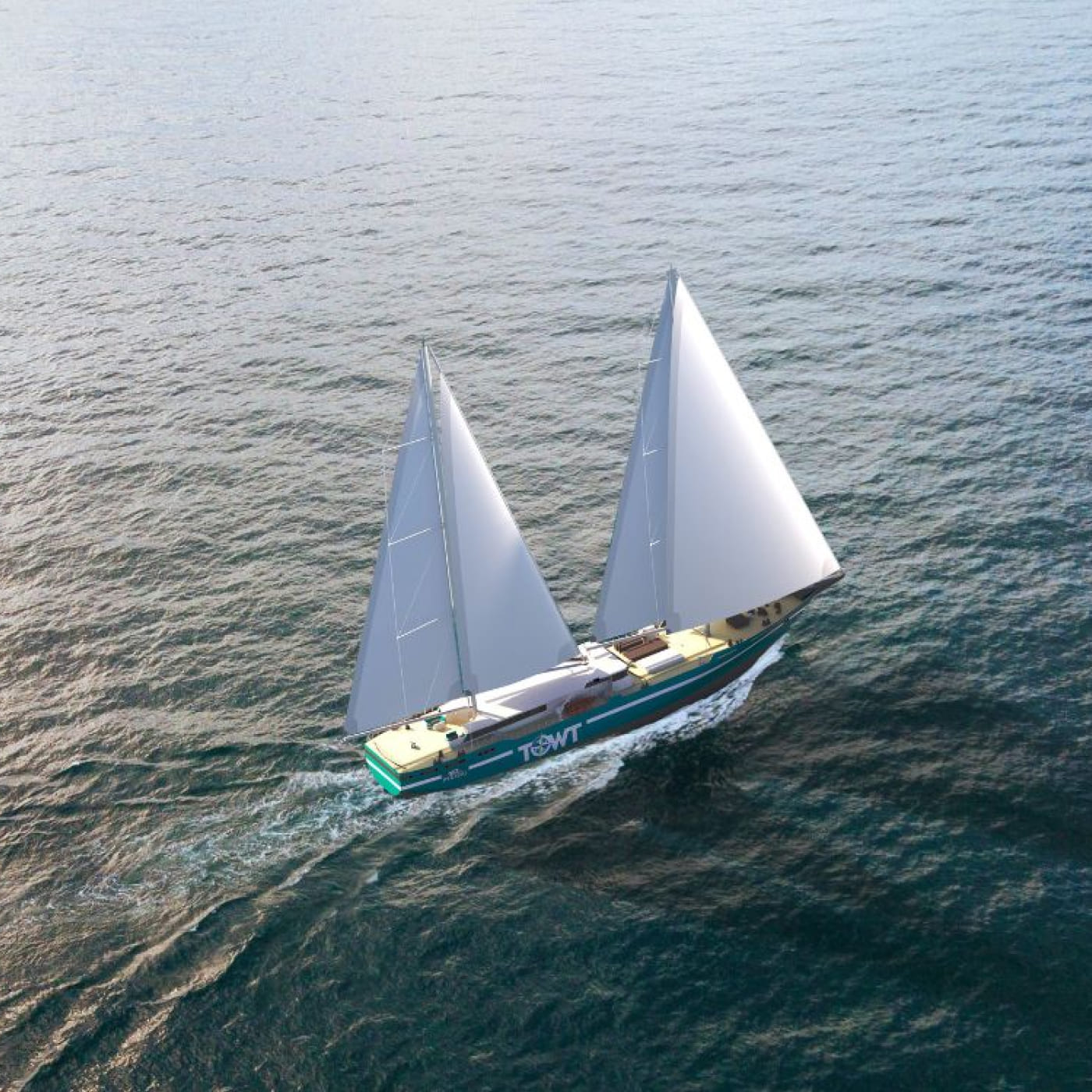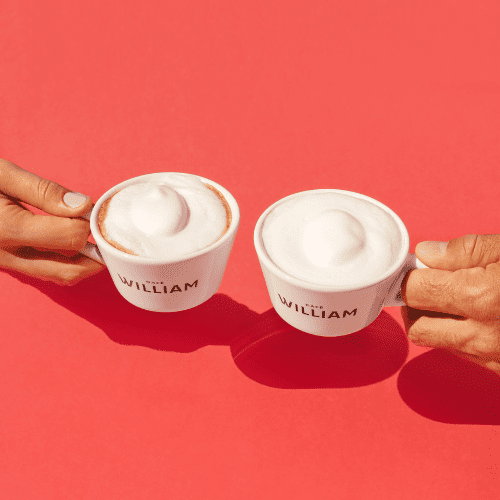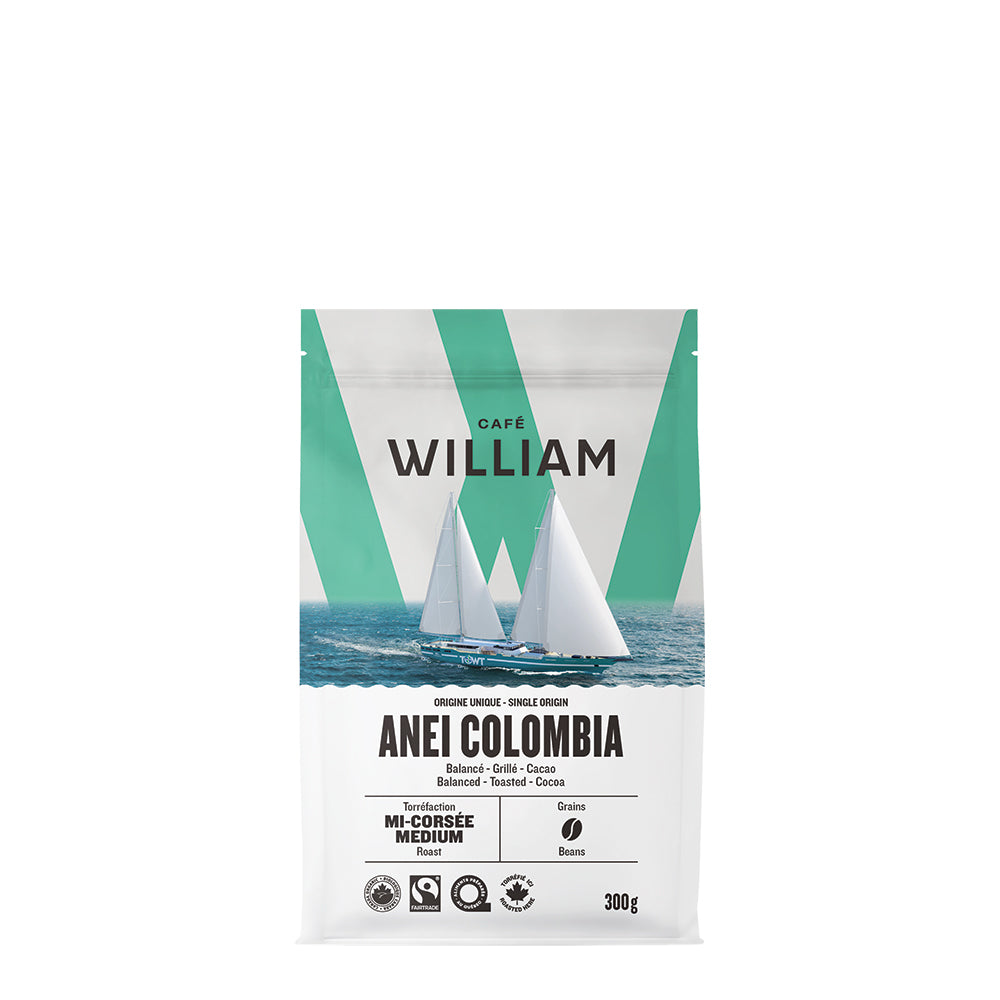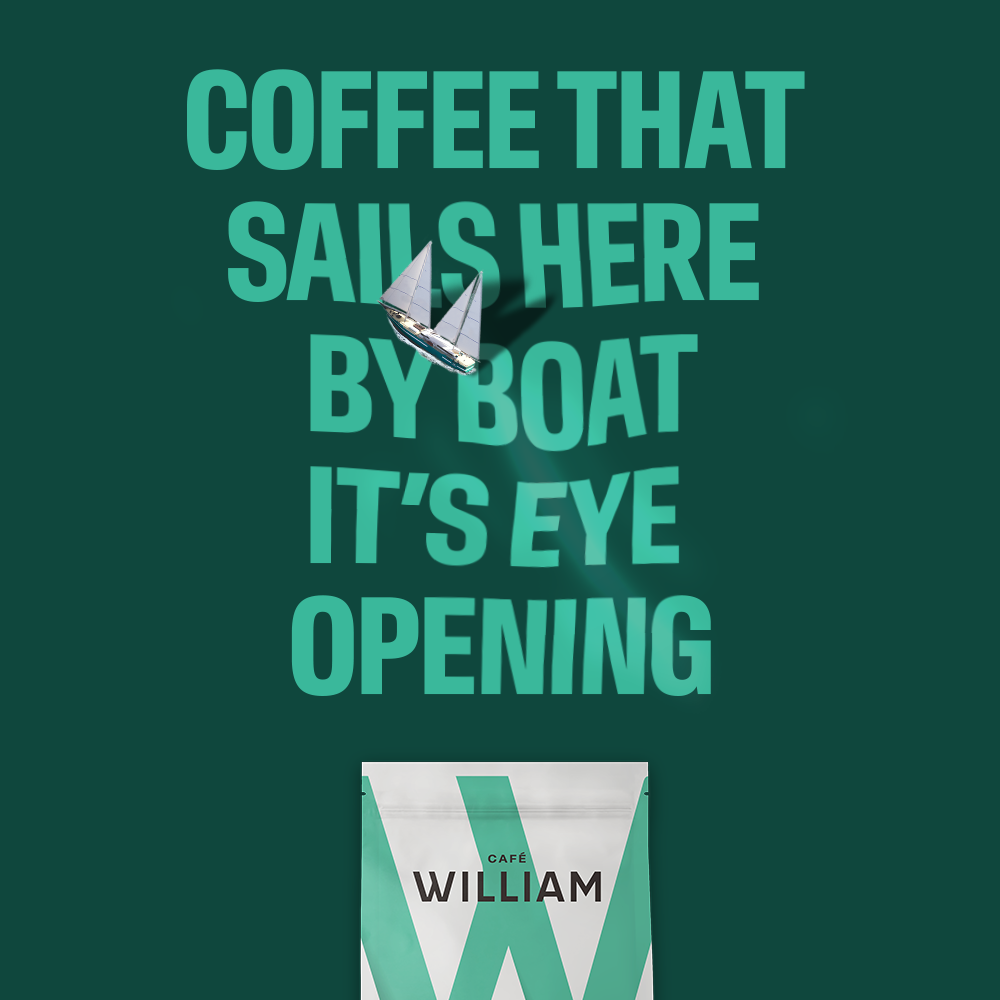_____________________________


A wind of change:
Café William revolutionizes the coffee industry with beans transported by sailboat
How did this crazy idea come about?
At Café William, we're always looking for ways to make the coffees we produce even more sustainable. Knowing that the shipping industry alone is responsible for over 3% of total GHG emissions each year, we decided to invest in reducing the environmental impact of our coffee imports. Of course, as Quebec is located thousands of kilometers from coffee-producing countries, finding an alternative for maritime transport was essential.
That's why we decided to jump aboard and invest in clean shipping. With sailboats, we use the wind rather than fossil fuels to transport the coffee. It's a concrete step towards our goal of producing the most sustainable coffee.
Café William partners with TOWT
In December 2023, we carried out our first sailboat transport of coffee beans aboard the Avontuur. At the end of this voyage, the equivalent of 5 containers of green coffee were transported by wind from Colombia to Canada. This first voyage confirmed our vision: transporting coffee by sailboat is viable and possible.
This year, we are setting sail and partnering with TransOceanic Wind Transportation (TOWT) to ensure sustainable coffee and shipping. This partnership marks the start of a new era in shipping, enabling coffee to be transported over thousands of kilometers with virtually zero GHG emissions. At the end of the inaugural voyage of the ANEMOS, the largest sailing cargo ship in modern history, the equivalent of 25 containers of green coffee produced by the ANEI cooperative will be transported from the Port of Santa Marta, Colombia, to the Port of Quebec. This tour de force demonstrates our ambition and our desire to innovate in order to act beyond the cup.
Discover the ANEI cooperative and Fairtrade Canada
ANEI cooperative
As part of this long journey, we have chosen to transport coffee beans produced by the Colombian cooperative ANEI. Founded in 1995, this cooperative of small producers from 4 indigenous Colombian communities shares the social and environmental values we advocate on a daily basis. The cooperative's commitment to improving the quality of life in its communities and the quality of their organic and fairtrade certified coffees made ANEI an ideal partner for our most sustainable coffee.
Learn more
Fairtrade Canada
Fairtrade is the world's most recognized and respected ethical label in terms of fair trading. This national non-profit organization is also an independent certification that supports, promotes and defends fairer trading conditions for farmers and workers disadvantaged by unfair global trade structures. Fairtrade stands for better prices, decent working conditions and fairer trading terms for farmers and workers.
Learn more
TASTE OUR COFFEE ARRIVED BY SAILBOAT
ANEI COLOMBIA
Grown at 1200 to 1500 metres, this Colombian coffee invites you to explore its balanced character, perfectly poised between gentle bitterness and bright acidity. A medium roast reveals a toasted aroma, layered cocoa notes, and gentle herbal hints. Cultivated by the ANEI cooperative and carried across the ocean by the world’s largest cargo sailboat, it’s a cup that stays true to its roots… and yours.
What next?
Our ambition is to make the cargo sailboat a high-impact sustainable solution. We want to significantly increase the quantity of containers transported by sailboat each year to reach several million pounds of coffee shipped by sail every year. The final goal being to have coffee transported by sailboat in each of the products of our sustainable collection.
Year after year, we hope to see this number increase to have a significant impact on our GHG emissions. Millions of pounds of coffee transported by the wind, that's our big idea. "We have been investing for several years to rethink and make the value chain sustainable, and this initiative is part of that commitment," adds Serge Picard. The goal of this initiative? To shake up the major players in the world of coffee. The best time to act for the environment is now.
Other coffees from South and Latin American countries are already on our radar for potential voyages to our roasting factory in Sherbrooke. As part of our six sustainable initiatives, the cargo sailboat will help us navigate smoothly toward our ambition to produce the most sustainable coffee in the world.











